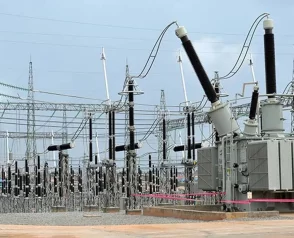The recent increase in electricity tariffs has stirred up concerns among consumers across various areas. While the hike was purportedly targeted at users in what’s known as Band A areas, the reality is that it has affected all bands. Evidence of this can be found in the bills received from electricity providers like Ikeja DISCO (IKEDC). Living in an area classified as Band E, such as Egan and Igando in the Ikotun-Igando LCDA area of Lagos, has left many residents needing clarification about their tariff band. Bills sometimes indicate Band D or Band E, leading to confusion.
Before the tariff hike announcement, bills for January 2024 showed a tariff of E-Non MD with charges of N1,679.15. However, a subsequent bill revealed a tariff of D-Non MD with charges of N2,518.73. This inconsistency was further highlighted in a bill for December 2023, which indicated a tariff of E-Non MD with charges of N1,679.15. The ambiguity regarding the tariff band was exacerbated by the March 2024 bill, which showed a tariff of D-Non MD with charges skyrocketing to N8,462.92, marking a significant increase from previous charges.
In areas like Egan and Igando, where electricity supply is unreliable, many residents heavily rely on generators to meet their power needs. Electricity is only supplied for a few hours during the early morning, prompting residents to quickly utilize electrical appliances such as water pumps and fridges and charge their phones. This limited supply has significant implications for businesses and individuals alike. For example, a neighbor who is a welder often operates his welding business using generators, causing disturbances with noise during late-night work sessions. Such reliance on generators increases costs for the service provider and customers.
The categorization of electricity consumers into bands, reminiscent of George Orwell’s “Animal Farm” maxim of “all animals are equal, but some are more equal than others,” has raised questions about fairness and equity. Notably, most artisans, such as welders, carpenters, and plumbers, reside in areas classified as Band D and E. Consequently, residents in Band A areas requiring their services may incur higher costs due to transportation expenses and potentially higher service charges.
Furthermore, rising electricity and fuel costs affect businesses beyond residential areas, particularly small traders who rely on refrigeration to preserve perishable goods like soft drinks and water. The resultant price increase negatively impacts sellers and consumers, highlighting the broader economic repercussions of energy cost escalation.
Addressing these challenges requires reevaluating energy policies to ensure affordability and accessibility for all citizens. Failure to do so perpetuates inequality and hampers efforts to alleviate poverty and improve living standards. As society increasingly relies on electricity for essential services and economic activities, the inability to access reliable and affordable power poses a significant barrier to development.
In conclusion, tackling the disparities in electricity access and affordability is essential for fostering inclusive economic growth and improving livelihoods. Government intervention is needed to address the systemic issues contributing to market segregation and ensure that energy policies prioritize the needs of all citizens, regardless of their socio-economic status or geographical location.

